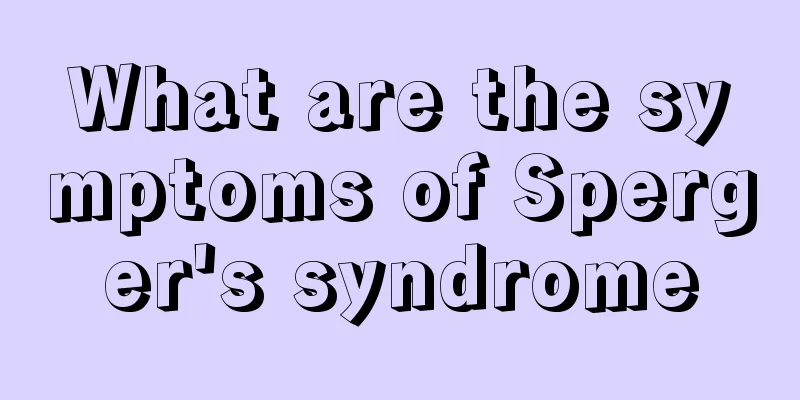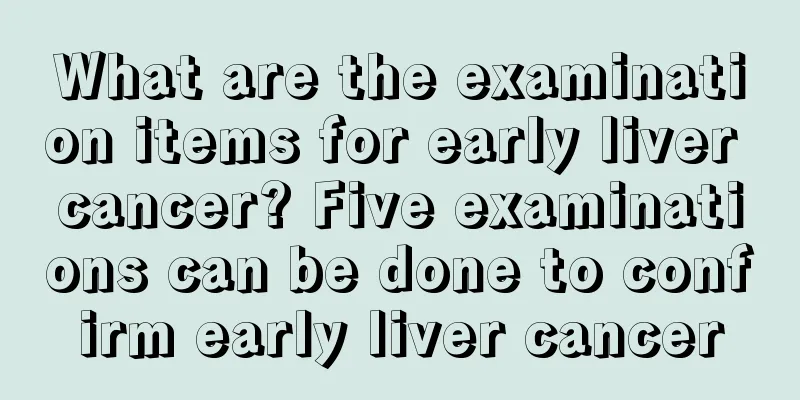What are the symptoms of Sperger's syndrome

|
Spurgeon syndrome, also known as autism, is a syndrome of neurodevelopmental disorders. According to research, there are many causes of the disease, mainly genetic inheritance, filterable viruses, problems with the mother during pregnancy and delivery, and external environmental stimulation. Every year, there are newborns suffering from this disease, which brings unspeakable pain to many families. After suffering from Spurgeon's syndrome, people will show a particular lack of language communication and will not like to communicate with people around them. Now let's talk about the symptoms of Spurgeon's syndrome. 1. Qualitative damage in social interaction Withdrawal and inability to make friends: AS patients are usually withdrawn and isolated, and often interact with others in an abnormal or strange manner. AS patients often desire and even try their best to establish connections with other people, but their clumsy communication skills and inability to understand other people's feelings and wishes (such as boredom, eagerness to leave, needs, privacy) make it impossible to establish connections. Slow recognition and lack of understanding of other people's emotions: In the emotional aspect of social communication, patients often show inappropriate reactions and incorrect interpretations during emotional exchanges, and are slow to respond to others' emotional expressions, have a rigid understanding, or even ignore them. Despite this, they are able to correctly describe other people's emotions in a cognitive and mechanical way. 2. Qualitative defects in language communication Although there is no significant functional impairment in this area in the definition of AS, there are at least three points worth noting about AS's language communication skills. Stiff language: Although the patient's word forms and intonation are not as monotonous and stereotyped as those of autism, the rhythm of the speech is poor, and there is often a lack of intonation in the statement of facts and humorous comments. 3. Restricted, repetitive, and patterned behaviors, interests, and activities The most commonly observed finding in AS is preoccupation with a restricted interest. This is a manifestation of deep involvement in some unusual and very limited topics. Although this symptom is not easily recognized in childhood, the behavior is very distinctive because patients often learn an unusually large amount of factual information about a limited number of topics (such as snakes, names of planets, maps, television listings, or railroad timetables). 4. Clumsy Movement The symptoms that are relevant to AS patients rather than diagnostic criteria are delayed motor development and motor clumsiness. People with AS may have a personal history of delayed motor skill development, such as learning to ride a bicycle, catch a ball, or open a can later than their peers. They are typically inflexible, have a rigid gait, odd posture, poor manipulative skills, and marked deficits in visual-motor coordination. |
<<: What are the correct steps for applying makeup?
>>: What is the treatment for elbow pain
Recommend
What kind of pillow should I use to protect my cervical spine?
In recent years, the incidence of cervical spondy...
Can minimally invasive interventional treatment of early gastric cancer be cured? It is possible
The depth of invasion of early gastric cancer is ...
Why are eyes yellow in late stage liver cancer? Is it a complication?
Patients with advanced liver cancer will have com...
What is the pain on the inner side of the left thigh
There are many reasons for thigh pain, such as ex...
Potassium permanganate to clean episiotomy wounds?
In daily life, for women who give birth naturally...
The benefits of spinal massage for children
Spinal manipulation refers to gently pinching the...
Superficial gastritis always makes me feel hungry
If a patient has long-term bad habits such as irr...
Don’t let the prostate become your “exclusive killer”
As for the disease of prostatitis in men, I think...
How to treat advanced lung cancer? 5 types of radiotherapy for lung cancer
Lung cancer refers to a disease in which cancerou...
Early symptoms check for lung cancer
The vast majority of lung cancer patients have no...
How long can you live with malignant melanoma
How long can patients with late-stage melanoma li...
How long is the shelf life of Fengmi
Feng honey is rich in many nutrients and has many...
Cold forehead
When winter comes, people with weaker constitutio...
Treatment of castration-resistant prostate cancer
Treatment of castration-resistant prostate cancer...
Aortic valvular insufficiency
Aortic valve insufficiency can cause the blood fl...









